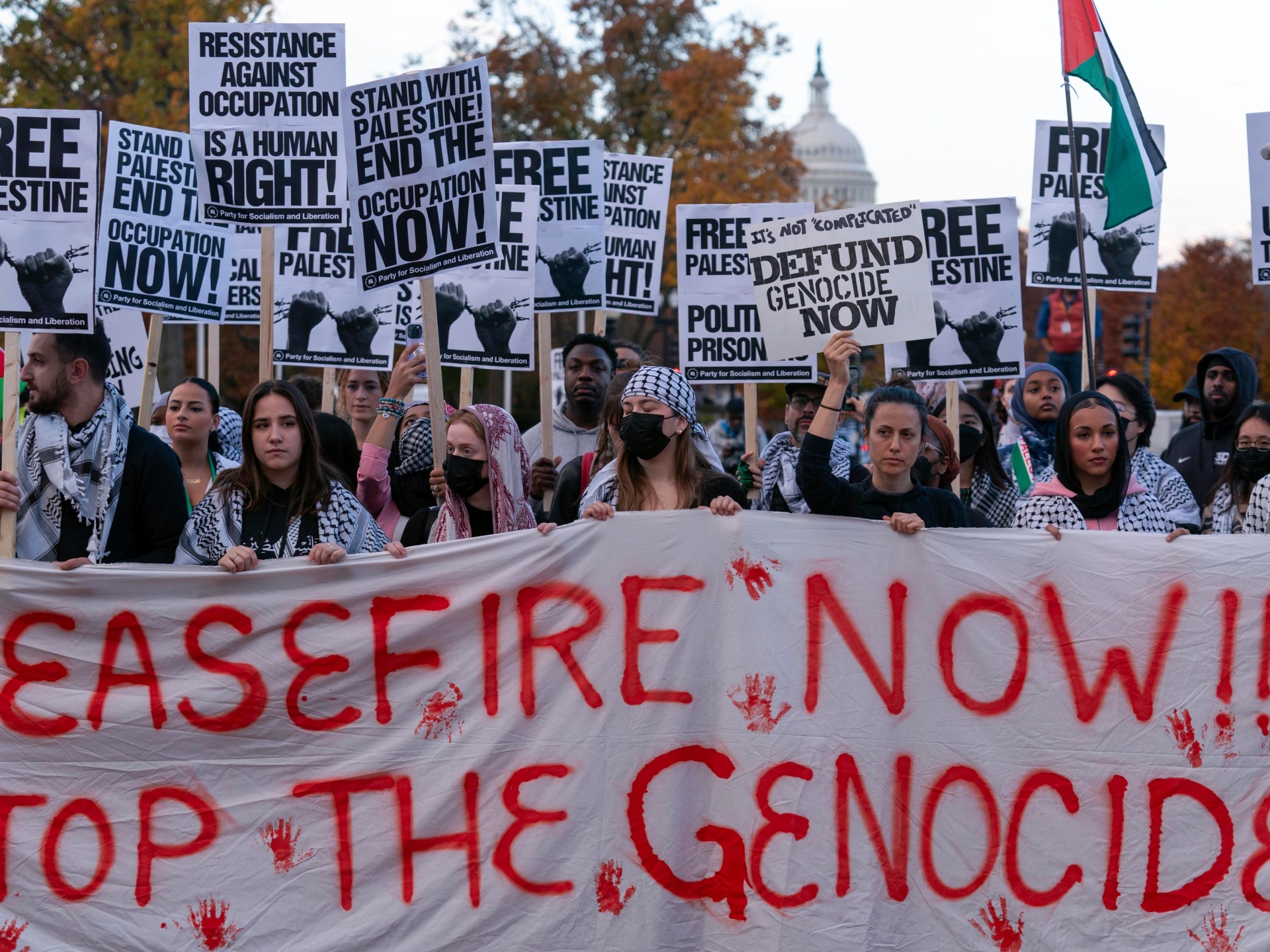The best films of 2023 … you may not have seen | Movies
You Hurt My Feelings
You Hurt My Feelings was a big hit at Sundance 12 months ago. Of course it was – Nicole Holofcener and Julia Louis-Dreyfus are the crack squad of Woody Allen-ish middle-class Manhattan first world problem cerebral comedy-dramas. But it was released way too early in the US, and then way too small in the UK – straight to streaming, in fact. That’s bananas: this is a terrific picture, fresh and funny and true and interesting. In short, Louis-Dreyfus is a novelist who overhears her shrink husband (Tobias Menzies) telling his friend he didn’t like her latest manuscript – despite having assured her to the contrary. Small fry in the bigger picture, sure, but the sort of betrayal (or, perhaps, loyalty) the movies don’t much get into, and played with an intelligence and a humour and a lightness of touch that only serves to make the upset more gut-punchy. Well worth a watch – and I’m not just saying that. Catherine Shoard
Will-o’-the-Wisp
Clocking in at a svelte 67 minutes, replete with impromptu musical numbers and borderline pornographic homoerotic hijinks, the latest film from Lisbon-born rapscallion João Pedro Rodrigues never stood much chance of infiltrating the mainstream. No matter to him; he’s got other things on his mind, pondering inequality, environmentalism and Portugal’s ugly colonial past through the fable of a foppish twink prince defecting from his pampered family to get a taste of real life. He finds it at a firehouse crawling with jockstrapped hunks who quiz him on fine art by posing in tableaux vivant as various paintings and sculptures, just one in a series of wicked games playing just-the-tip with taboos. (In the sauciest, Rodrigues breaks the class tension by conceptualizing it as a literal circle-jerk.) Too smart to be simple smut and too hornt-up to lapse into windbaggery, it’s an ideal – and very open! – marriage of high-minded philosophizing with obscene base pleasures. Charles Bramesco
Bad Press
There are documentaries that delve into little-known local specificity, which probe sweeping injustices, which follow memorable people through tumult. And then there’s Bad Press, which manages to do all three, with plenty of hardscrabble journalism moments to boot. Directed by Joe Peeler, who is white, and Rebecca Landsberry-Baker, who is Muscogee Creek, Bad Press tackles a sweeping issue – the lack of free press protections within Native American tribes, itself the downstream effect of displacement, discrimination and the unique position of tribal sovereignty – in microcosm, through the journalists working at Mvskoke Media in Okmulgee, Oklahoma. In 2018, the Mvskoke staff came to work to find their rare free press protections (only five out of 574 federally recognized tribes have them) gutted and the tribal council on which they were reporting now in charge of final edits. What would you do? At turns infuriating, funny, layered, inspiring and always bracingly direct, Bad Press is one of the best and most insightful documentaries of the year, one that should be on more radars. Adrian Horton
Operation Fortune: Ruse de Guerre
It did some respectable business in a few places (what’s up, Australia!), but in North America, Operation Fortune: Ruse de Guerre, the first of two Guy Ritchie movies released in spring 2023, bombed. That is to say it really and truly bombed, not Disney-style “made a bunch of money but also cost too much to turn a profit” bombed. (By year’s end, it won’t even be on the top 100 American grossers of the year.) It’s too bad, because in a year when suddenly certain tried-and-true blockbuster formulas seemed to leave audiences cold and streamers failed to pick up the slack, Ritchie continued his post-franchise run with one of his most entertaining movies to date: a vaguely low-rent yet wholly delightful blend of Mission: Impossible, Ocean’s 11 and, well, the immovable force that is Jason Statham. Stath seems to be having a blast here, alongside an equally charismatic Aubrey Plaza and recent Ritchie rep players Josh Hartnett and Hugh Grant, forming a weird little ensemble where everyone snaps into place. Statham, Plaza and their team of blase super-spies recruit a Hollywood superstar (Hartnett) to infiltrate the inner circle of an arms dealer (Grant) – but really, the movie is about Ritchie nailing something Netflix (Red Notice) and Apple (Ghosted) have spent kajillions failing to do well: a breezy caper revival that glows with good cheer. Jesse Hassenger
Influencer
My expectations for streamer-made movies have been crumbling by the week, the great industry “disruption” translating to dross that looks and feels like it was made for TV decades ago. It’s made sifting through it all feel rather thankless but earlier this year, the horror-focused platform Shudder made it suddenly seem worthwhile with the ferociously entertaining thriller Influencer. Following a disillusioned social media influencer as she encounters a charismatic new friend while on an all-expenses-paid trip to Thailand, it’s the type of twisty, constantly unravelling head-spinner that’s best enjoyed knowing very little (I recommend avoiding the trailer above). Recent films about the dangers of the digital world have been by-and-large, notorious misfires, but writer-director Kurtis David Harder and co-writer Tesh Guttikonda find an ingenious way in, a story of deception and ruthlessness that even Patricia Highsmith would surely have double-tapped. Benjamin Lee
Monica
Showing aspects of transgender life that I have rarely, if ever, seen in film, and having one of the most fully realized trans protagonists that I am aware of, would be reason enough to give the unfortunately overlooked Monica some renewed attention during the holidays. But the film also offers a star-making role for leading lady Trace Lysette, and is yet another stunningly observed and inventively shot film from director Andrea Pallaoro. At its heart it’s a movie about the complexities and interrelationships of generations of women in an American family, as much as it’s also about bringing truthfulness and complexity to lives that are currently being stigmatized into one-dimensional caricatures. Veronica Esposito
Palm Trees and Power Lines
When you’re a young girl who captures the attention of an older man, you think it’s because you’re so fascinating and mature. A few years later, you learn the quietly devastating truth: you’re not special, and there are always going to be creepy older dudes lurking around high school parties or teenage hangouts. I’m not surprised that only three other people were at my screening of Palm Trees and Power Lines, director Jamie Dack’s film about a 17-year-old girl on summer break who falls for an initially charming older man. Most people do not want to spend their Friday nights watching a bleak drama about a suburban teen who falls for a sex trafficker. But it’s softly crushing to watch protagonist Lea experience the hallmarks of a snoozy summer vacation (sneaking cigs with friends, getting into fights with mom about nothing), devolve into something much darker, but still crushingly banal. As Dack told the Guardian, these types of stories are “not unique at all”, but still deserve our attention, no matter how tough to watch. Alaina Demopoulos
Queens of the Qing Dynasty
Daring, disorienting and astonishingly inviting, the Canadian film-maker Ashley McKenzie’s sophomore feature follows a neurodivergent teenager on suicide watch who forges a bond with the genderqueer immigrant from Shanghai tasked with caring for them. The former, Star, is played with a charm that verges on extraterrestrial by Sarah Walker. Star has a vacant stare and speaks as though she’s letting out words on a lark. Perhaps they’ll find meaning for those not yet on her wavelength. She finds comfort with An (Ziyin Zheng playing a version of themselves), the generous and patient hospital volunteer waiting for citizenship and the means to transition. The pair’s chemistry borders on romcom in this small miracle of a film from McKenzie, who made her breakthrough with the more sombre neorealist drama Werewolf, about a couple scraping by while battling addiction. Here, amid antiseptic hospital spaces and the harsh wintry Cape Breton climate, McKenzie beautifully threads the needle between stark social drama and fantasy, and ends up with something strange, warm and uplifting. Radheyan Simonpillai
Sick of Myself
On the face of it, Sick of Myself should have been another obvious and clunky black comedy. But Norwegian writer-director Kristoffer Borgli’s feature is as assured and nuanced as it is eviscerating of the trauma-plot trap. Signe (an ingenious Kristine Kujath Thorp), a twentysomething barista, is more than eager to have her day in the sun. Done with watching others soak up the limelight (namely Thomas, her art world fuckboy boyfriend), Signe orchestrates a never-ending sick day that is bound to garner the attention that has long eluded her. Her primary prop: a mysterious and fluorescent yellow Russian drug whose side-effects are known to trigger gruesome facial maladies. Signe’s newly pustular complexion comes with a gross-out factor, but this film plunges deeper than the surface. Signe, often bandaged beyond recognition, rockets to stardom, appearing in magazine stories and modeling for disability-focused clothing lines and “inclusive-sized” bedding ranges. Falling somewhere on the spectrum between Ottessa Moshfegh’s ugly-beautiful novels and Greta Gerwig’s megahit Barbie, Sick of Myself is a piercing portrait of girlhood in the late-stage Venmo era. Lauren Mechling
Outlaw Johnny Black
Ever since Black Dynamite popped under the radar in 2009 on the way to becoming a comedy cult classic, I’ve made a point of keeping close tabs on Michael Jai White – the workaday actor and expert martial artist who starred in and conceived of that note-perfect blaxploitation satire. Outlaw Johnny Black, the follow-up, was just as slept on when it debuted in September. In it, White plays a hair-trigger saint turned sinner hellbent on avenging his father’s death while posing as a preacher in a small mining town. (Phew!) Many of the same players that gave Black Dynamite its punch (Tommy Davidson, Kym Whitley, Byron Minns) recur with a new crew of A-listers (Glynn Thurman, Anika Noni Rose, Jill Scott). Outlaw burns more slowly than its spiritual successor, unfolding more like a reheated spaghetti western than a spoof with White also in the director’s chair this time around. Still, there’s enough horsing around to make it well worth the watch. Andrew Lawrence
Our Body
A three-hour documentary tour of the gynecological wing of a Paris hospital, done in the observational style of Frederick Wiseman, was never going to be a great commercial prospect. But it’s a nonetheless vital and prismatic look at the scope of women’s healthcare services that has a fly-on-the-wall quality while also being distinctly personal for director Claire Simon, who faces her own diagnosis in the final third. Over the course of Our Body, we witness a midwife shift gracefully from a routine birth to a C-section, managing both the practical and emotional demands of each, and we listen to a mother’s tearful recollection of a birth that turned into an life-threatening emergency. We also peek in on conversations about trans care and watch the delicate work of lab fertilization. Women’s bodies are often political battlegrounds, and Simon does the hard work of revealing what care actually looks like. Scott Tobias





